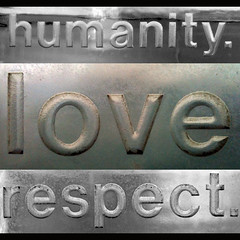Hello dear readers! Last week felt like a massive trainwreck to me. And it started out so well. I was excited to get out another polytheology post on Monday and was hoping to get back into blogging after only putting out four posts in October. Then things changed on Tuesday.
I will note that Tuesday already started out rough for me before the U.S. election results started rolling in. I was dealing with some aches and pains1 Monday night, which meant I got very little sleep. What sleep I got wasn’t all that restful either. So when I got up Tuesday morning, I decided to take an unplanned day off from work. I spent the day with my husband watching television and YouTube videos, playing computer games, and just enjoying each other’s company.
That evening, I made the mistake of looking at the election results so far. Things did not look promising. At the time, only 217 electoral votes had been called for Trump. Harris had secured 174. And while there were plenty of states that hadn’t been called yet, the map I was looking at showed that the vast majority of the outstanding states were clearly leaning toward Trump. But as someone who tries to remain hopeful, I told myself anything could still happen. Still, my husband and I took a few minutes to discuss our fears and what we might want to do if the worst happens.
Tuesday morning, my hopes were dashed and I was devastated and angry. In fact, I was angry enough that I was willing to say the following on social media:
I’m not going to lie. Those were not entirely idle words. I put some power behind them.2 I am that angry about the fact that so many of my fellow Americans are willing to vote for a man and a party3 that holds that much contempt towards so many of us. They wouldn’t mind seeing many of us getting harmed as long as they think it’ll get them what they want.
After that, I went silent on social media for a few days. I decided I just needed a break from the political hellscape. I needed time to keep myself from spiraling into total despair and fear. After all, there’s a part of me that fears just how bad things could get over the next few years. I really do believe that if we don’t find effective and meaningful ways to resist, our democracy could warp into something sinister and even fascist.4 While those fears are legitimate, I needed time to get some distance from them lest they rob me of my ability to resist. If that were to happen, I’d be of no help in reshaping wyrd and setting our society and country back on a better path.
So right now, I’m trying to figure out what my part in resisting the nightmare policies Trump and his supporters have planned will look like. I’m not sure what efforts I want to financially support and how much I can budget for that efforts.
The one thing I do know is that for me, resistance will start with continuing to be myself. I will continue to maintain this blog and my presence on social media sites. I will continue to post about the things that matter to me and present my authentic self and my perspective on the world. After all, I’m among the people that Trump and his base like to dehumanize and deny rights to, so it’s important to make myself seen and my humanity evident in order to push back against those attempts.
I’ve also been thinking about community a lot. I think that in this time, community and mutual support will be even more important. And I think that working communally will be vital.5 I’m not sure what that will look like for me, but it’s something I’m thinking about.
I’m still reeling. I’m still trying to recover. But I’m here and I will not allow my fear and despair to drag me away from my ability to help make this world a better place. I’m just taking some time to develop a vision and a plan.
Post History: The first draft of this post was written on November 9, 2024. I proofread, revised, and finalized it on November 20, 2024.
Footnotes
- It’s somewhat distressing how frequently I have aches and pains these days. After all, I’m still only fifty and hope to live another forty years or more. What are things going to be like when I’m ninety? ↩︎
- Before any naive readers start shouting “harm none” at me, you might want to be aware that (1) I do not consider the Wiccan rede binding and (2) I don’t interpret it as prohibiting all harmful acts anyway. ↩︎
- I mention this because our problem is not Trump. Trump is just the symptom of the greater problems that are deeply rooted in our society and system. Problems like misogyny, white supremacy, Christian supremacy, and queerphobia. Trump’s just what you get when we as a society let these problems run rampant. ↩︎
- The reality is that our democracy is already broken and that was true even before Tuesday. Now we have to find a way to keep it from getting worse and hopefully reverse the damage already done. ↩︎
- I find it interesting and appropriate that my recent posts in my polytheology series have spoken heavily at the concept of community and group work toward a better world. It’s a reminder I think I and many others need right now. ↩︎




